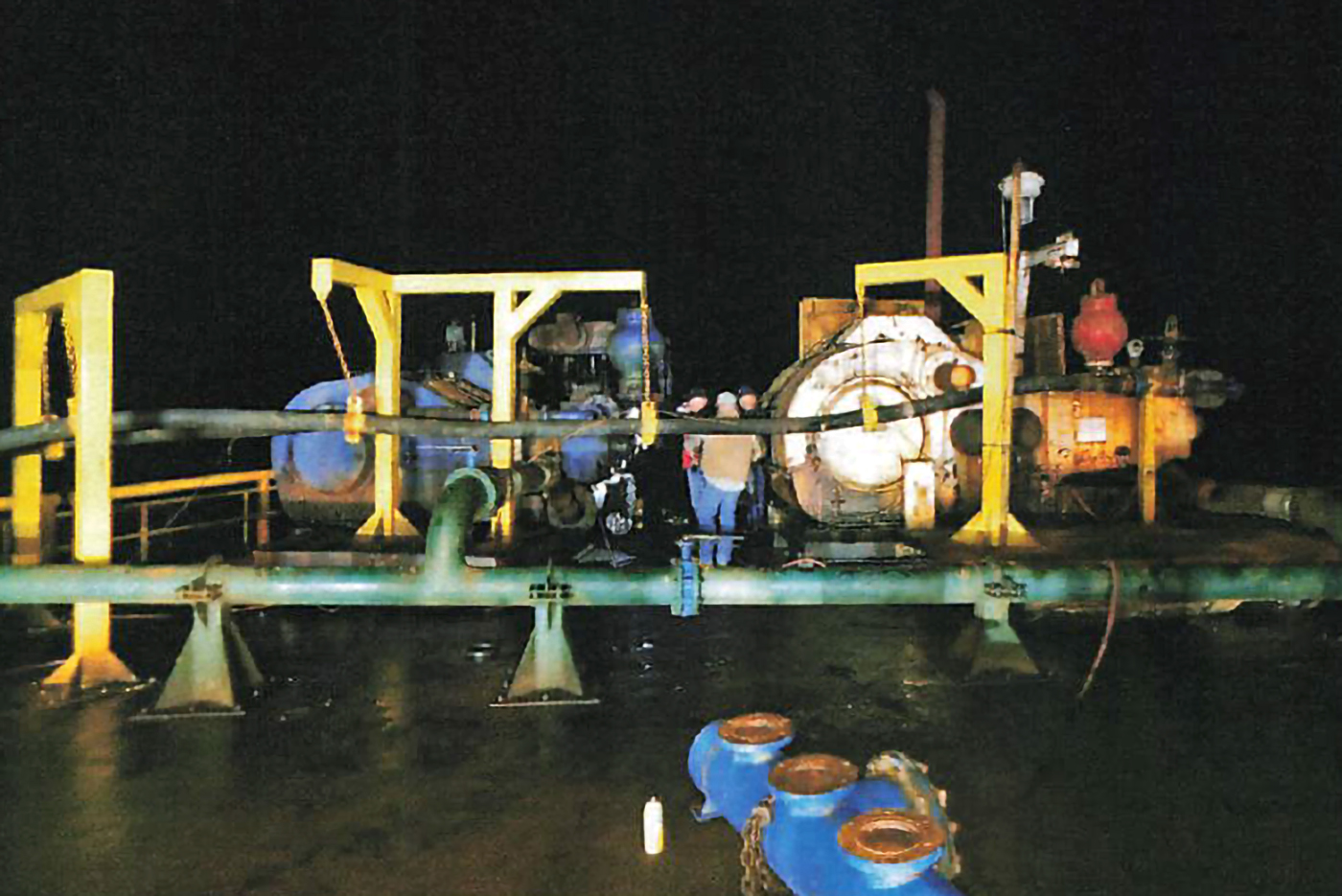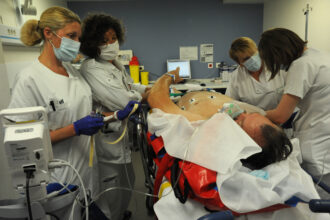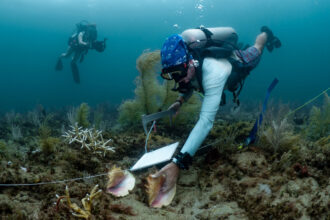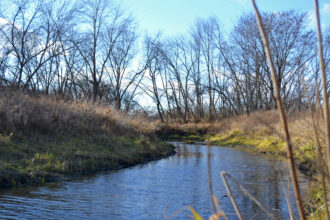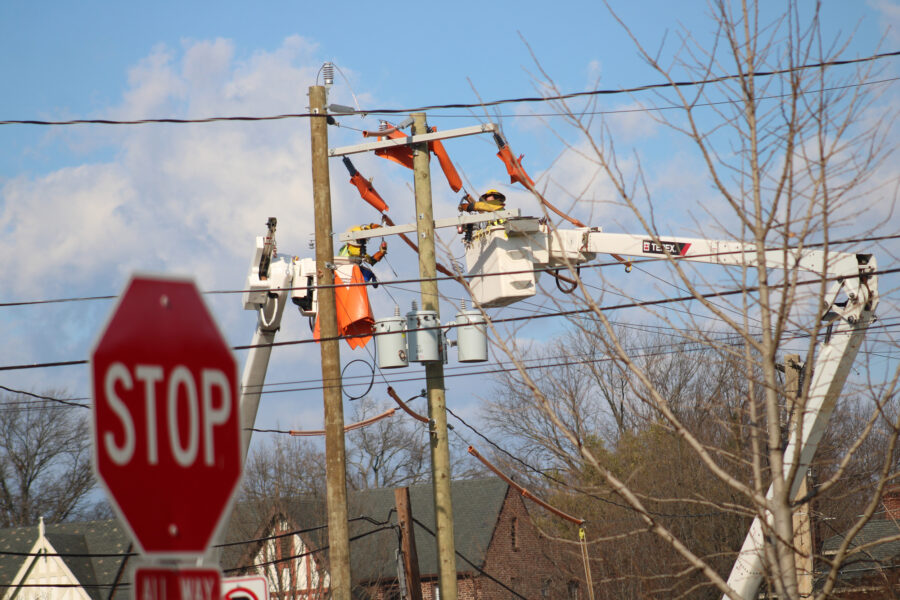By the time emergency medical providers reached McBride Operating in Waskom, Texas, a small town near the Louisiana border, it was too late. Pedro Julian Garcia, a father of two, died after being struck by a pump valve at the oilfield waste company on the night of Feb. 6, 2024.
Occupational Safety and Health Administration (OSHA) inspectors later found McBride had not adequately trained Garcia. They uncovered a host of other problems, from hazardous extension cords to missing safety paperwork. McBride, headquartered in Longview, paid over $32,000 in fines to OSHA for a dozen workplace safety violations and separately settled a civil lawsuit filed by Garcia’s family.

McBride’s operations had already generated controversy in the tiny town—Garcia’s death is one in a series of worker safety and environmental incidents in the five years McBride has operated in Waskom. Pedro Leyva, an attorney with Glasheen, Valles and Inderman Injury Lawyers who represented Garcia’s family, called McBride a “bad operator” with aging equipment held together by “Band-aid” fixes in an interview. Prior to the fatality, McBride settled another lawsuit in 2024 with another employee who sustained two on-the-job injuries. Neither party admitted wrongdoing.
Charlie Rose, a spokesman for McBride Operating, described Garcia’s death as “a heartbreaking loss.” Rose said McBride “is deeply committed to safety, compliance, and operational excellence across all of our facilities.” He declined further comment on the accident.
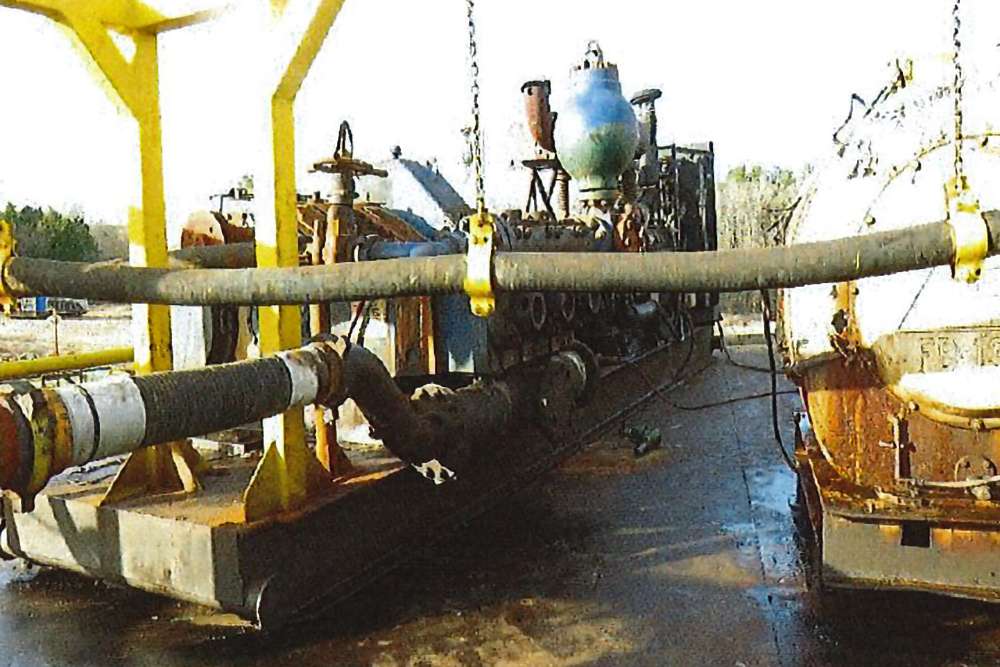
The Railroad Commission of Texas, a state agency that oversees oil and gas facilities in Texas, has separately documented dozens of violations of its rules at the McBride facility in Waskom, including improper disposal of waste and spills of hazardous materials. There were so many problems that earlier this year, the agency denied McBride’s application to renew its Waskom operating permit. But in late July, the Railroad Commission and McBride reached a settlement, which gave the company 90 days to provide agency staff with an engineering plan to implement the agreed upon remedies.
Yet even as those problems unfolded, the Railroad Commission greenlit expansion by issuing permits for McBride to operate more oilfield waste landfills in the nearby East Texas towns of Paxton and Elysian Fields.
Danger Signs At McBride
The oil and gas industry is a major employer in East Texas, which is part of the Haynesville shale basin. Workers at oilfield waste disposal sites use heavy machinery and can be exposed to dangerous hydrogen sulfide gas.
Hundreds of trucks transport drilling waste between gas wells and the Waskom facility every day. The trucks can be loaded with water or oil-based drilling muds and produced water that comes up during the drilling process. The waste can contain benzene, toluene, ethylbenzene and xylene and other harmful constituents. Despite its toxicity, oil and gas waste is deemed non-hazardous under the federal Resource Conservation and Recovery Act. Once separated, liquid waste is injected underground and solid waste is transported offsite to landfills.
The night of the fatal accident was not the first warning that McBride had a workplace safety problem.
On April 1, 2021, McBride employee Jaire Jackson climbed into a large fracking waste container known as a frac tank while he was cleaning it. Hazardous fumes knocked him unconscious and another worker climbed inside to pull him out. Workers are generally prohibited to enter frac tanks, because they can be exposed to amounts of hydrogen sulfide gas that exceed OSHA limits and can cause serious injury or death.
A few months later on August 13, 2021, Jackson was handling a hose connected to a truck delivering waste to McBride. The hose blew off the truck, spraying scalding water and severely burning his right foot. Jackson filed a lawsuit against McBride for negligence contributing to his injuries. He eventually reached a confidential settlement with McBride.
“We categorically denied the allegations and stood firmly by the integrity of our safety practices throughout the process,” said Rose, the McBride spokesperson. “We firmly disputed Mr. Jackson’s claims during the legal proceedings and the parties disagreed over responsibility, but we were pleased that the matter was ultimately able to be resolved amicably with him and without admission of wrongdoing by either party.”
Josh Maness, a Waskom attorney representing Jackson, deposed McBride’s operations manager Carrie Dowden in November 2022. Dowden said that McBride employees only receive “on the job” training and that the facility has no designated safety consultant or coordinator. Dowden herself lacked any oilfield experience when she began managing the facility; she had previously worked as a bartender.
This story is funded by readers like you.
Our nonprofit newsroom provides award-winning climate coverage free of charge and advertising. We rely on donations from readers like you to keep going. Please donate now to support our work.
Donate NowManess also asked whether McBride had an operations manual.“Could be,” Dowden replied. “There’s a lot of manuals in my office.”
When asked about a safety pamphlet she had mentioned, Dowden said the pamphlet could “possibly” be at her office but warned that “it’s a mess up there.” She was equally vague when Maness asked about attendance lists from any safety presentations. Dowden appeared unfamiliar with the OSHA rules that require reporting serious workplace injuries.
Dowden said that McBride does not provide any personal protective equipment (PPE) to its employees.
Rose disputed several claims from the deposition. He said that McBride maintains operation manuals at all facilities that are regularly reviewed and updated. He said that every employee completes a comprehensive safety orientation, including OSHA standards, hazard recognition, and operational protocols, before starting the job. Rose also said that McBride provides all required PPE, with the exception of work boots, and that statements to the contrary are incorrect. He attributed the discrepancies to “stress” from the deposition and “natural pressures” of the workplace.
Less than two years later, Dowden was being interviewed once again. This time it was by OSHA investigators after a workplace fatality.
Worker’s Death Triggers OSHA Inspection
Pedro Julian Garcia, originally from Chihuahua, Mexico, lived in Marshall, 20 miles west of Waskom on Interstate Highway 20. He began working at McBride in April 2022, according to OSHA documents.
A supervisor asked Garcia to repair a leaking pump on the night of Feb. 6, 2024, according to a statement he later gave investigators. The supervisor claimed he told Garcia to wait so they could fix the pump together but that Garcia went ahead on his own.
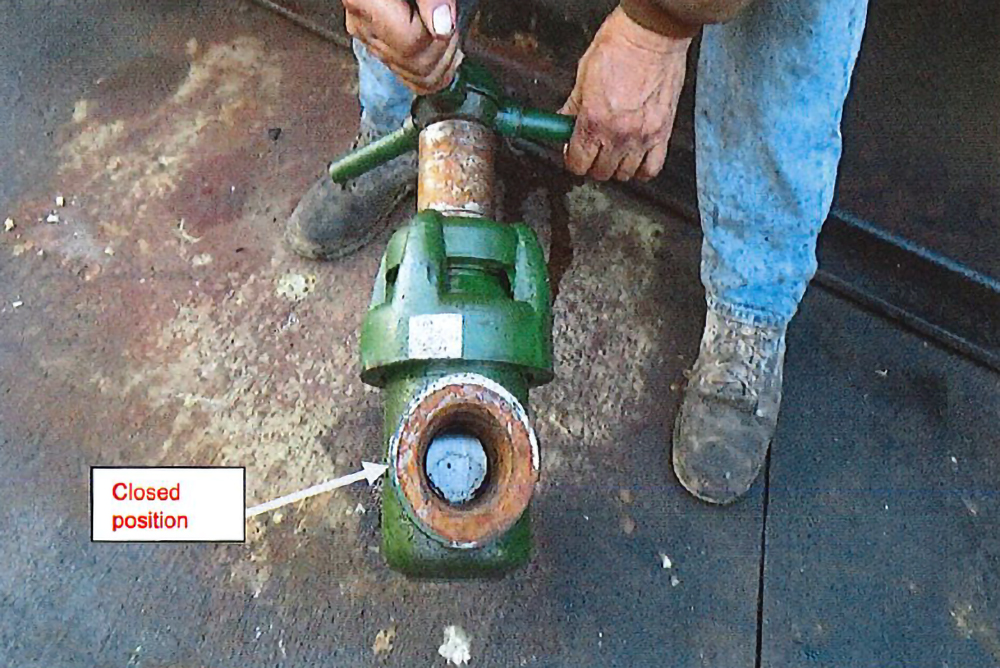
Garcia did not shut off the pressure to the pump, causing the valve to fly off and strike him in the chest, according to the supervisor’s statement to OSHA. He was declared dead when EMS arrived. (Funeral services were held in Marshall and he was buried in Mexico, according to an online obituary.)
OSHA inspectors arrived the next day to investigate. They found that McBride did not have a “lockout/tagout” procedure to disable the pump during maintenance. There was no operations manual for the pump, which had been purchased second-hand.
Fire extinguishers had not been serviced. Electrical cords and hoses presented a tripping hazard. And McBride did not keep OSHA logs, as required, between 2022 and 2024. Inspectors noted there was not an effective health and safety management system.
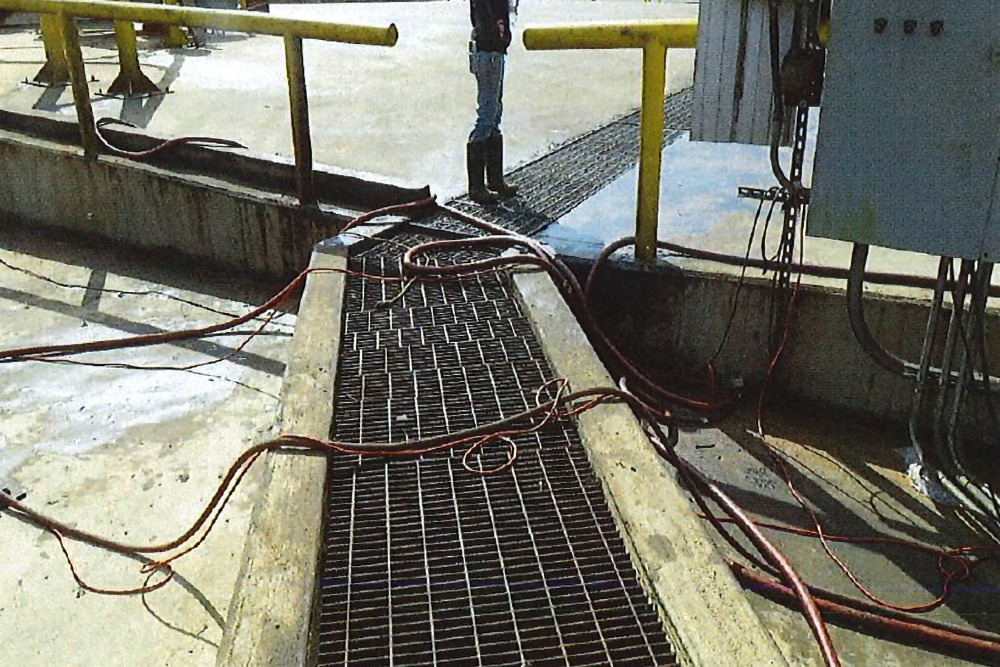
Rose, the company spokesman, said that McBride Operating “fully cooperated with OSHA throughout its investigation and conducted a comprehensive internal review to evaluate and strengthen our safety systems.” He said that cited issues were addressed and corrective actions taken.
McBride also settled a lawsuit with Garcia’s parents and the mothers of his two young daughters. “It’s an older facility that was in need of everything being replaced,” said Leyva, the attorney who represented Garcia’s family in the wrongful death case.
Since the fatality, Rose said that McBride has implemented “targeted enhancements” to safety protocols, expanded employee training, and increased operational oversight.
The McBride facility in Waskom remains open as the company works on changes required to renew its Railroad Commission permit.
About This Story
Perhaps you noticed: This story, like all the news we publish, is free to read. That’s because Inside Climate News is a 501c3 nonprofit organization. We do not charge a subscription fee, lock our news behind a paywall, or clutter our website with ads. We make our news on climate and the environment freely available to you and anyone who wants it.
That’s not all. We also share our news for free with scores of other media organizations around the country. Many of them can’t afford to do environmental journalism of their own. We’ve built bureaus from coast to coast to report local stories, collaborate with local newsrooms and co-publish articles so that this vital work is shared as widely as possible.
Two of us launched ICN in 2007. Six years later we earned a Pulitzer Prize for National Reporting, and now we run the oldest and largest dedicated climate newsroom in the nation. We tell the story in all its complexity. We hold polluters accountable. We expose environmental injustice. We debunk misinformation. We scrutinize solutions and inspire action.
Donations from readers like you fund every aspect of what we do. If you don’t already, will you support our ongoing work, our reporting on the biggest crisis facing our planet, and help us reach even more readers in more places?
Please take a moment to make a tax-deductible donation. Every one of them makes a difference.
Thank you,


